@kukul1de answer does the trick.
I'd also note that transitfeeds links to the official download URL. The link is located on the right, under "About This GTFS Feed" (check the image below):

Then you can right-click and select "Copy Link Location", which will give you the official URL with a .zip extension, which you can use in conjunction with download.file().
HOWEVER, this specific URL links to a file which is actually a .zip that contains many folders, each one containing a distinct GTFS file, and not a .zip in the GTFS format.
Was it an actual GTFS .zip file you would be able to use either {gtfstools} or {tidytransit} to read it, but unfortunately the file format does not allow it. Check it out:
tmp <- tempfile(pattern = "gtfs", fileext = ".zip")
download.file(
"http://data.ptv.vic.gov.au/downloads/gtfs.zip",
destfile = tmp
)
zip::zip_list(tmp)
#> filename compressed_size uncompressed_size timestamp
#> 1 1/ 0 0 2021-02-22 19:23:20
#> 2 10/ 0 0 2021-02-22 19:23:20
#> 3 10/google_transit.zip 3231 4011 2021-02-22 19:09:56
#> 4 11/ 0 0 2021-02-22 19:23:20
#> 5 11/google_transit.zip 29966 32109 2021-02-22 19:10:12
#> 6 1/google_transit.zip 7262254 7625276 2021-02-22 19:01:56
#> 7 2/ 0 0 2021-02-22 19:23:20
#> 8 2/google_transit.zip 5667379 6269932 2021-02-22 19:03:34
#> 9 3/ 0 0 2021-02-22 19:23:20
#> 10 3/google_transit.zip 6714271 7782585 2021-02-22 19:05:04
#> 11 4/ 0 0 2021-02-22 19:23:20
#> 12 4/google_transit.zip 66336783 67508547 2021-02-22 19:23:16
#> 13 5/ 0 0 2021-02-22 19:23:20
#> 14 5/google_transit.zip 27834469 27962731 2021-02-22 19:06:16
#> 15 6/ 0 0 2021-02-22 19:23:20
#> 16 6/google_transit.zip 13730731 14172729 2021-02-22 19:09:10
#> 17 7/ 0 0 2021-02-22 19:23:20
#> 18 7/google_transit.zip 46932 50417 2021-02-22 19:09:24
#> 19 8/ 0 0 2021-02-22 19:23:20
#> 20 8/google_transit.zip 574316 580906 2021-02-22 19:09:42
Let's say you want to read the GTFS file inside the 1/ folder. Then you can unzip this file with zip::unzip():
tmpd <- file.path(tempdir(), "tmp_gtfs")
dir.create(tmpd)
zip::unzip(tmp, files = "1/google_transit.zip", exdir = tmpd)
list.files(tmpd)
#> [1] "1"
list.files(file.path(tmpd, "1"))
#> [1] "google_transit.zip"
And read it with {gtfstools} or {tidytransit}. It depends on what you wanna do with the file:
gtfs_path <- file.path(tmpd, "1", "google_transit.zip")
gt_gtfs <- gtfstools::read_gtfs(gtfs_path)
names(gt_gtfs)
#> [1] "agency" "routes" "trips" "stops"
#> [5] "calendar" "calendar_dates" "shapes" "stop_times"
tt_gtfs <- tidytransit::read_gtfs(gtfs_path)
names(tt_gtfs)
#> [1] "agency" "routes" "trips" "stops"
#> [5] "calendar" "calendar_dates" "shapes" "stop_times"
